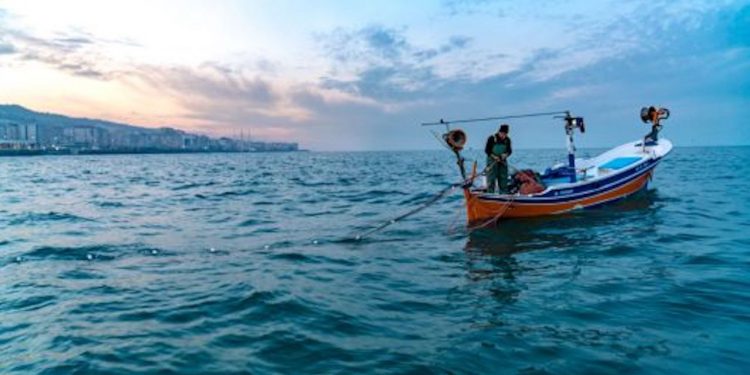Since the 1960s, a series of dramatic environmental changes have occurred in the Black Sea, putting at risk the survival of living marine resources. Black Sea countries have united to tackle this grave situation and achieve sustainable fisheries in the region.
On World Fisheries Day last week, FAO’s General Fisheries Commission for the Mediterranean (GFCM) welcomed the recent improvements in the management and conservation of marine resources in the region and celebrates Bulgaria’s 50-year anniversary of joining the GFCM.
A key sector for the Black Sea economy is fisheries, which generates an annual revenue of US$350 million. To help protect fish stocks, the GFCM, launched the BlackSea4Fish project that organises training and technical activities to standardise methodologies and promotes data and knowledge sharing in the region.
‘We have to continue strengthening regional cooperation to foster the environmental, economic, and social sustainability of Black Sea fisheries and aquaculture,’ said Desislava Taneva, Bulgaria’s Minister of Agriculture, Food and Forestry.
‘Our common responsibility is to have a healthy Black Sea ecosystem and sustainable fish resources for the present and future generations through the adoption of effective conservation, management and control measures.’
‘Thanks to strengthened political commitments and increased funding and contributions from riparian countries, in the next years we are expecting to see the dream of a complete regional survey of the whole Black Sea come true,’ commented Abdellah Srour, Executive Secretary of the GFCM. ‘This survey will be key to acquire state-of-the-art scientific information in order to formulate advice and set up cutting edge management plans for the region.’
Bulgaria hosts the GFCM´s technical unit located in Burgas, which promotes co-operation across Black Sea countries by facilitating dialogue on regional issues and common transboundary challenges linked to fisheries and aquaculture in the Black Sea.
‘Without the activity that we are performing here jointly under the auspices of the GFCM, we would never be able to achieve such clear and transparent results,’ explained Oleksandr Chashchyn, Leading Scientist at the Southern Research Institute of Marine Fisheries and Oceanography Odessa.
This is the first time experts from all the countries in the region are being provided with training and are able to use harmonised methodologies. The knowledge gained from this collaboration is used to assess the state of marine fish stocks and significantly improve the understanding of fish populations.
‘The activities that have been developed in the last few years also have another very practical application, as we already have seven GFCM decisions that were made in particular reference to Black Sea fisheries, and some of them have already been implemented,’ said Simion Nicolaev, General Director of the National Institute for Marine Research and Development Grigore Antipa in Constanţa, Romania.
These decisions create a harmonised framework for the management of Black Sea resources that benefits all the coastal communities. Monitoring, control, and surveillance activities have been launched and, over the past few years, much has been done to fight illegal, unreported, and unregulated fishing.
Particular attention is paid to turbot, whose stocks were depleted due to overfishing due to its high commercial value. Various bans, monitoring programmes, and awareness campaigns are now in place in order to protect this precious common resource.
Aquaculture also has a major role to play in the Black Sea. Aquaculture Demonstrative Centres have been created to provide capacity-building and technical assistance in order to stimulate fresh investment and a political commitment for the sustainable development of the sector. Success stories in the Black Sea involve aquaculture for turbot, rainbow trout, sea bass, and Black Sea mussels. Two centres are already functioning in Romania and Turkey and a new one in Bulgaria is expected to be ready by the end of 2020.









